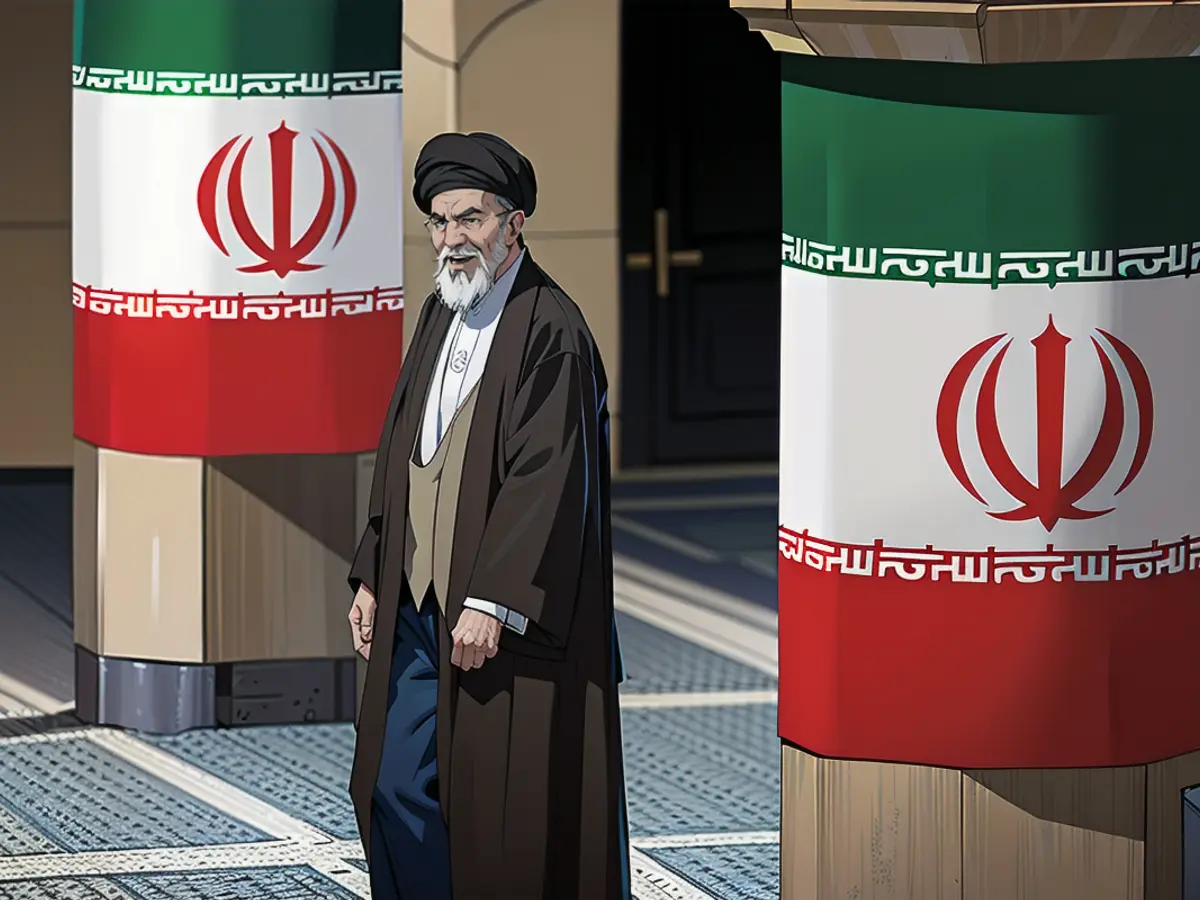Familiar figure takes over as Iran's new foreign Minister for US authorities.
One well-known figure caught the attention of American officials: the newly appointed foreign minister, Ali Bagheri Kani.
Perceived by US officials as a staunch supporter of the establishment, Kani has played a crucial role in negotiations between Iran and the US on various topics such as nuclear issues and Iran's use of proxy forces to target US and allied interests in the region.
Last week, Kani was part of a group of senior Iranian representatives who met with American officials indirectly in Oman. While the US and Iran have no formal diplomatic ties, communications were facilitated by Omani officials.
Kani, according to US officials, is a familiar face and a key reason the Biden administration anticipates minimal adjustments in Iran's policies following the sudden demise of its president and other top figures.
For hours after receiving initial news that a helicopter crash had claimed the lives of several high-ranking Iranian leaders, including President Ebrahim Raisi, US officials were unsure of the full extent of the accident.
However, once it became apparent that Raisi and the others on board had passed away, a general consensus emerged within the US government that Iran's foreign and domestic policies would continue as before.
This is because Iran's true powerholder is its Supreme Leader, Ayatollah Ali Khamenei. Raisi functioned mainly as a subordinate. As highlighted by Jonathan Panikoff, an ex-intelligence analyst specializing in the region, "Khamenei holds ultimate decision-making authority over everything; Raisi only had influence and impact."
Khamenei, who is now 85, has been struggling with his health and is under close observation. Post the deaths of these top officials, US officials predict Khamenei will ensure replacements share his hardline worldview.
"It's hard to anticipate significant changes in Iran's behavior on the global stage," a senior administration official noted.
If anything, Panikoff added, the crash could make Iran more cautious for now.
While it's too early to fully comprehend how this crash might affect overall regional volatility, including Iran's actions in Gaza, the Biden administration currently forecasts little impact.
Effects on Succession Plan
Raisi was a potential heir to Khamenei, and his death has fueled conversations among policymakers and intelligence analysts trying to understand how this might affect the succession process. The Supreme Leader is chosen by a secretive body known as the Assembly of Experts. Some believe the son of Khamenei may now be a stronger candidate due to Raisi's death, although he may lack the necessary religious qualifications.
The difficulty lies in predicting how the Assembly of Experts will choose their next leader and how Raisi's death might affect this process.
"That could be true if the Ayatollah dies in the coming month," Panikoff speculated. "But I don't think it will be as accurate if there are more candidates and other contenders have emerged in the system."
Raisi's demise may provide a brief opportunity for domestic agitation. Based on the Iranian constitution, elections must select a new president within 50 days of Raisi's death.
The Iranian regime has faced declining public support; Raisi earned the nickname "the butcher of Tehran," and a meme has circulated within Iran celebrating his passing. Though the regime will likely manipulate the election process, limiting who can run, some analysts claim this incident may prompt some unrest.
Despite this, the Iranian authorities are expected to suppress any manifestations of dissent. The recent parliamentary elections in March had record low voter turnout, suggesting growing discontent with the regime, but not enough to spark meaningful protests.
Effects on Proxy Activities
The upheaval in Iran's leadership coincides with its involvement in the complex regional situation surrounding Israel's invasion of Gaza. Iran has supported a range of proxies attacking US and Israeli interests in the area, and in April, it launched a substantial missile and drone attack against Israel.
US officials have long held the view that Iran aims to carefully manage the escalating regional situation, causing harm to its adversaries while steering clear of a direct confrontation with the United States or Israel.
A military official stated they haven't witnessed any increase in proxy activities stemming from the crash.
Similarly, this event has not provided the US with new opportunities when it comes to diplomacy with Iran. The same challenging issues - including Iran's nuclear program - persist.
During discussions with Iranian officials in Oman last week, US officials laid out the consequences of Iran's unsettling actions, behaviors, and policies, as confirmed by the senior administration official and a US official.
The Biden administration believes that no interaction with Iran increases the risk of dangerous misunderstandings, insiders shared with CNN. To handle Iran, they will employ a mixed strategy of deterrence and diplomacy, as seen with the recent discussions. Topics on the table included Iran's sponsorship of terrorism, its numerous proxy groups, and its nuclear ambitions.
Both parties have been in touch using this indirect approach several times since the Israel-Hamas confrontation erupted in October. Their latest meeting was the first in several months.
After the crash, Iran requested American aid in search and rescue efforts.
According to State Department representative Matt Miller, the United States was unable to offer assistance "mainly due to logistical constraints."

Read also:
- Year of climate records: extreme is the new normal
- Precautionary arrests show Islamist terror threat
- UN vote urges Israel to ceasefire
- SPD rules out budget resolution before the end of the year
The newly appointed foreign minister, Ali Bagheri Kani, is widely perceived by US officials as having a strong allegiance to the establishment in Iran. During his tenure, he has played a crucial role in negotiations between Iran and the US on various topics, including nuclear issues and Iran's use of proxy forces against US interests.
In light of the sudden demise of Iran's president and other top figures, US officials believe that Kani will ensure the continuation of Iran's hardline policies under the Supreme Leader, Ayatollah Ali Khamenei, due to his stanch support for the establishment.
Source: edition.cnn.com








